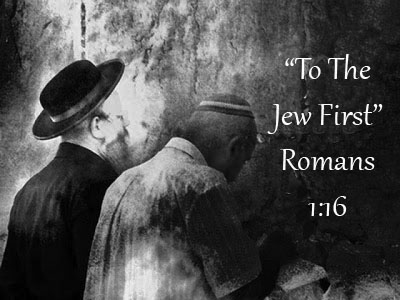The Scriptures & the Oral Law

Excerpted from Sam Nadler’s book: Messianic Discipleship
Deepening your spiritual roots includes understanding why the present majority of the Jewish people do not accept the truth of God’s Word regarding your faith in Yeshua. Just as sharing Messiah has benefits for your own spiritual walk, so also these are truths for your edification.
The Word of God
The Scriptures tell us to expect that only a remnant would accept God’s salvation, whether it be in the days of Elijah the Prophet, or the days of Isaiah, or at the present time (1 Kings 19:18; Isaiah 10:21; Romans 11:5). Yet, many believers have a concern to understand some of the traditional objections to faith in Yeshua, so as to be able to share Messiah. It is to these vital truths we now turn.
The objections of the next three chapters all deal with the Word of God. By “the Word of God,” we are referring to two aspects of God’s revelation of Himself: the Scriptures, and Messiah. Both are described as the Word of God.
. The Scripture of God is His Word Inscribed or written down. This is the special revelation of God that proclaims the only way to salvation.
. The Son of God is His Word Incarnate (“in the flesh,” John 1:1, 14; Hebrews 1:1-3). He is the redemption of God Who alone provides the way of salvation.
More Confidence in Messiah
The Scripture of God and the Son of God perfectly reveal God’s character and concern for you. Tragically, Rabbinic Judaism has rejected both what the Scriptures proclaim, and what the Son provides regarding our salvation.
Both Jewish and Gentile believers should comprehend these differences surrounding this split, seeking to be a bridge. These issues are presented so that as you study and appreciate the Scriptural basis of these vital truths, your faith will be strengthened, your spiritual roots will be deepened, and you will have even more confidence in Messiah Yeshua!
What is Our Foundation?
An Orthodox Jewish man was asked by a believing Jewish acquaintance to read Isaiah 53 and decide what it teaches. The Orthodox man responded, “I will decide what it teaches after I study what the traditional interpretation is in the Oral Law.” In Orthodox Judaism, one should not attempt to understand the Scriptures apart from the traditional explanation as laid out in the Oral Law. To the Orthodox Jew, the Oral Law is the authoritative interpretation of the Scriptures.
Oral Law refers to the Talmud, which is a compilation of Rabbinic commentaries on the first five books of Moses, called the Torah. The Talmud, completed around 500 CE, consists of the Mishnah as well as commentary on the Mishnah called Gemara (Mishnah + Gemara=Talmud). The tradition grew to include a further compendium called Midrash until about the 12th century (these terms can be found in the glossary in the back).
Should “Oral Law” have Ultimate Authority
Sadly, when Christendom had power, it often persecuted the Jewish people with ferocity; this even extended to mass burnings of the Talmud. This sort of evil has deep roots and is addressed in two of our books, Even You Can Share the Jewish Messiah, and The Messianic Answer Book. For now, let us note that the Talmud contains much beauty, wisdom, and valuable historical information. It should go without saying perhaps, but any approach which seeks to destroy literature or force people to believe is contrary to the approach of Messiah. Regardless, the basic issue we need to consider is whether this tradition should have ultimate authority. Indeed, it should not.
“Oral Law’s” Origin
The authority granted the Oral Law is based on a theory about its origin. The Talmud itself claims that along with the Law from God at Mount Sinai that is written down, Moses also received revelation from God, which was not originally written down, but “transmitted” orally – thus, the Oral Law. This claim to authority is found in the following well known quotation from the Talmud: “Moses received the Torah at Sinai and transmitted it to Joshua, Joshua to the Elders, and the Elders to the Prophets, and the Prophets to the men of the Great Synagogue” (Pirke Avot 1a).
Rabbi J. Israelstam explains the meaning of this passage: “the transmission and reception were done orally through a continuous succession of ‘schools’ headed by the Elders, prophets and scribes of their respective generations.” In other words, the claim is that there was revelation from God separate from the Scriptures and passed down alongside the written Word.
Authority of the Written Scripture
This tradition was allegedly transmitted orally to keep the proper interpretation of Scripture out of Gentile hands, until it eventually had to be written down or perish (Avi Shafran, Jew Think, p.26-28). As plausible as this may or may not appear, the origin comes into question. If the Talmud’s claim to originate as Oral Law is untrue – that is, if the Oral Law was not given by God to Moses – then it is an unreliable tradition, and not to be given divine authority.
The written Scriptures speak directly to this issue. First, we need to recognize the basic and authoritative assumption of the Bible as a whole.
Notice 2 Timothy 3:16, “All Scripture is inspired by God.” The word used for Scripture in the Greek is graphe. This is the Greek word for “writing,” similar to the Hebrew usage of ketav as in Daniel 10:21, “But I will tell you what is noted in the Scripture of truth.” The word “Scripture” simply, but quite importantly, means “Writings.”
The point the Bible makes is that whatever “truth” was authoritatively inspired by God was written down. The fact directly contradicts the rabbinical idea and traditional premise for the origin and authority of the Oral Law.
But beyond this, the Scriptures directly teach the impossibility of an Oral Law from Moses on Mount Sinai, or anywhere else.
To understand this, we should look at Exodus 24, which describes Moses’ return to the people of Israel after receiving the Law from God on Mount Sinai: So, Moses came and told the people all the words of the LORD and all the ordinances. And all the people answered with one voice and said, “All the words which the LORD has said we will do.”
No Leftovers
And Moses wrote down all the words of the LORD…
Then he took the Book of the Covenant and read it in the hearing of the people. And they said, “All that the LORD has said we will do and be obedient.” (Exodus 24:3-4, 7)
So, Moses wrote down all (kol, again) the words of the LORD. There was nothing else left over to “transmit” orally; no leftover Torah, no Oral Law!
In Exodus 24:7, when Moses read to the people from the Book of the Covenant the same words of the Lord that he had shared with them earlier (24:3), the words were recognized as the same and complete words they had heard by responding in the same manner. “All that the LORD has said we will do.” There simply was no Oral Law from Moses at Mount Sinai.
To receive your own copy of Messianic Discipleship on sale now, visit Word of Messiah’s Bookstore!




Add Comment